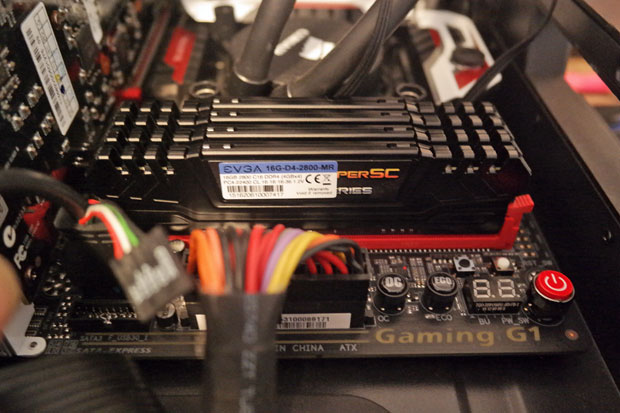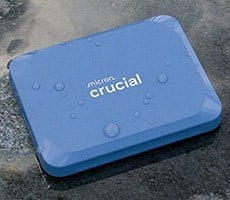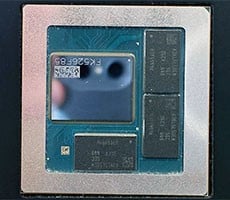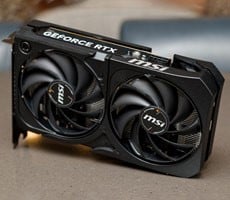EVGA 2800 SuperSC DDR4 Memory Review: Exploring Speeds Up To 2800MHz
EVGA decided to branch out this year. No, not with AMD graphics; the company's GPU offerings are still very much based on reference cards from Team Green. Yet, in an effort to expand their product lines, the largest North American vendor of NVIDIA graphics cards now offers their own branded memory modules in both DDR3 and DDR4 flavors, spanning 10 different SKUs. Today, we’re checking out the burliest DRAM module set on offer—the High Performance 2800 SuperSC DDR4 Series 16GB kit (4x4GB).
Many DIY builders still using older platforms and DDR3 are wondering if they'll see concrete benefits from a move to a newer platform and DDR4. Newer DDR4 memory is indeed more efficient, faster and made with higher density chip components so you can get higher densities of memory per module. The increased frequencies from DDR4 are due to its higher double data-rate speeds, which can reach 3200MHz or more for increased performance. Finally, DDR4 is somewhat more efficient, making it a smart option for low-powered systems as DDR4 requires less power at stock values (1.2v versus up to 1.5v for DDR3), which could help lower power budget requirements and possibly system temps.
EVGA's High Performance 2800 SuperSC DDR4 Series 16GB kit doesn’t stand out much from similarly spec’d modules in both DDR4 and DDR3 varieties. We haven’t been able to get much information from EVGA on them either, beyond the vague, somewhat interesting claim that, “…it is considered EVGA memory.” Regardless, the modules use a black PCB and a custom designed heat spreader, also styled in black and emblazoned with the logo and product branding. The design and chips used are being kept close to the vest. However, the conservative styling and form factor of their head spreaders are low-profile so the modules will fit in most systems without issue.
Test Setup
Our test rig is an Intel Core i7-6700K-based Skylake system, built around a Z170-based Gigabyte Gaming G1 motherboard, in which we have installed 16GB of Corsair Vengeance 2666MHz DDR4 or the EVGA memory. We are running Windows 10 for the OS. It was installed to a 256GB Corsair Neutron Series XT SSD, with game and benchmark files installed on a dual 128GB Sandisk mSATA RAID array, inside an external Asus USB 3.1 enclosure.
|
|
|
| Hardware Used: Intel Core i7-6700K Skylake (Stock 4.0GHz, Quad-Core) Gigabyte Z170X-Gaming G1 EVGA GTX 970 SSC 16GB EVGA High Performance DDR4-2800 |
Operating Software: Windows 10 Pro x64 Benchmarks Used: PCMark 8 (Work/content creation) AIDA 64 SiSoft Sandra 2015 Metro: Last Light Redux |










